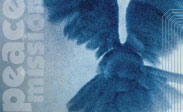


   |
|
Lech Walesa - Poland
Year: 1983 Nobel Peace Prize Cause: Liberation of Poland from communist regime. Biography Lech Walesa was born on 29 September 1943 in Popowo, near Wloclawek, Poland.His father died shortly after World War II; he and his brothers and sisters were raised by their mother, aunt and uncle. The Soviet Union occupied Poland after the war, and the Soviet-imposed communist government controlled almost every aspect of life in Poland, except for the Catholic Church. Walesa was only an average student at his parish school and after graduating from the state vocational school in Lipno, where he learned the electrician's trade, worked as a car mechanic at a machine center from 1961 to 1965. He served in the army for two years, rose to the rank of corporal, and in 1967 was employed in the Lenin shipyard in Gdansk as an electrician. In 1970, when the shipyards were the center of huge and violent demonstrations against the government's decision to increase food prices, Walesa was among the demonstrators. Throughout the next he decade played a role in organizing the shipyard protests. In 1976 he was fired for his political activities. Although he was only sporadically employed for the next four years, he persisted in his organizing. Walesa continued to involve himself in organising free non-communist trade unions and in 1980, along with some of his friends, founded Solidarnosc (Solidarity). It was not long before the organization had 10 million members and Walesa was its undisputed leader. In August 1980 Walesa led the Gdansk shipyard strike which gave rise to a wave of strikes over much of the country. Walesa, a devout Catholic, developed a loyal following and the communist authorities were forced to capitulate. The Gdansk Agreement, signed on 31st August, 1980, gave Polish workers the right to strike and to organise their own independent union. Walesa's activities were supported by the Catholic Church. In January 1981 he was received by Pope John Paul II in Rome. Relationships with the Polish government, however, worsened. In December 1981 martial law was declared and Walesa was arrested. He spent a year in jail before returning to his job at the Gdansk shipyards in 1982. Under Walesa's leadership, the Solidarity movement defeated the Polish Communist party in 1989. Walesa became the first democratically-elected president of Poland in 1990. His autobiography, The Struggle and the Triumph, first appeared in English in 1992.He was not a success as president and his critics claimed he developed an authoritarian style in running the country. In November 1995 Walesa was defeated by the former communist, Aleksander Kwasniewski. Achivements Walesa received the Nobel Prize for Peace in 1983, the Nobel committee saluted "the power of victory which abides in one person's belief, in his vision and in his courage to follow his call." Time magazine named him one of the 100 most influential people of the past century. Walesa has been granted many honorary degrees from universities, including Harvard University and the University of Paris. Other honors include the Medal of Freedom (Philadelphia, U.S.A.); the Award of Free World (Norway); and the European Award of Human Rights. Related Links Poland - A Country Study (Library of Congress Country Studies Series) |